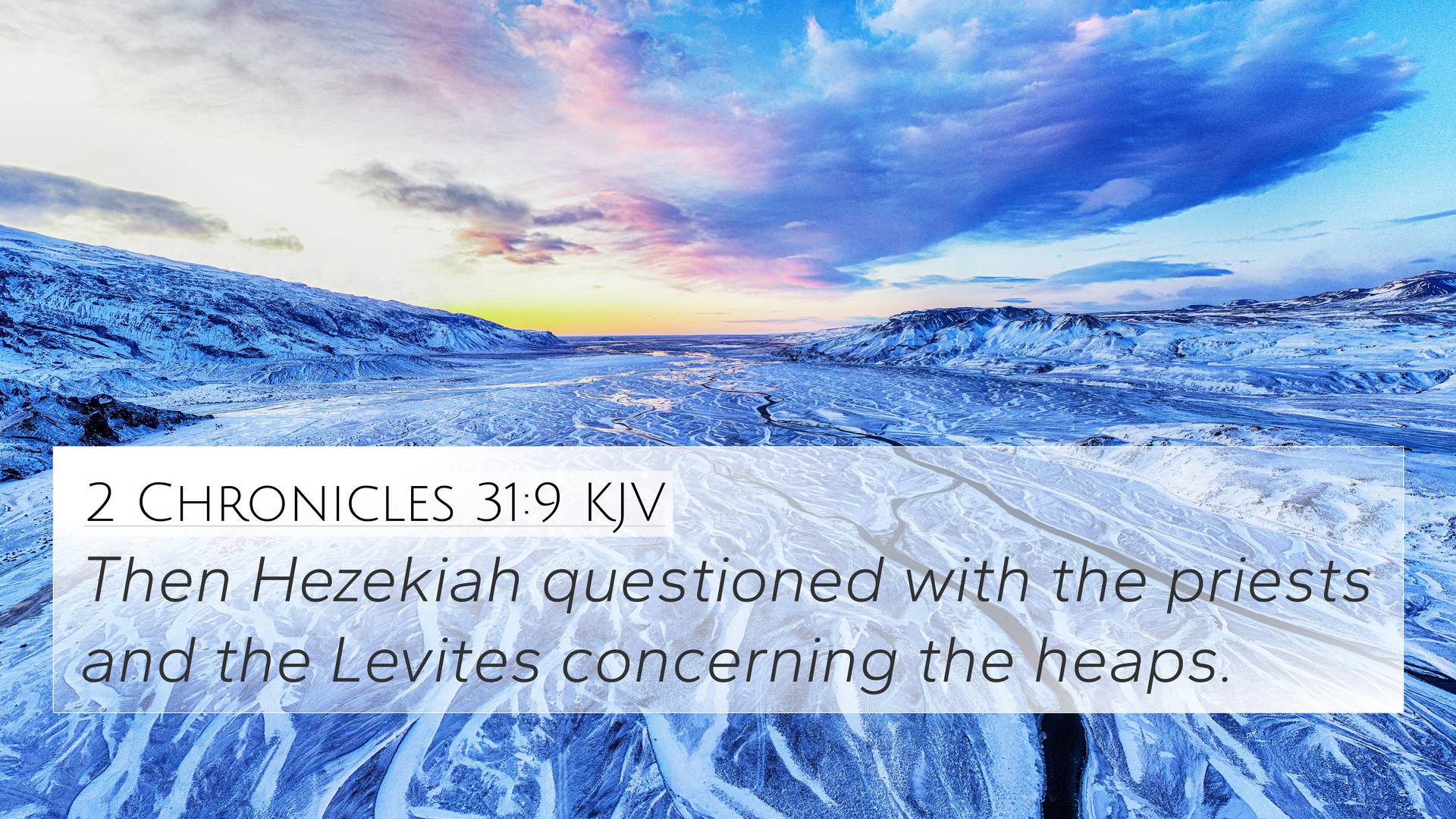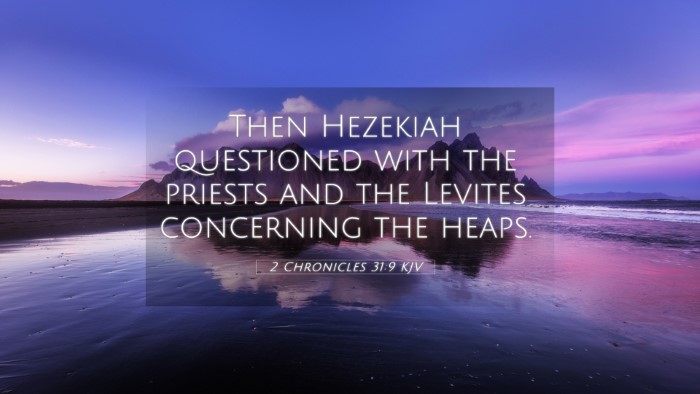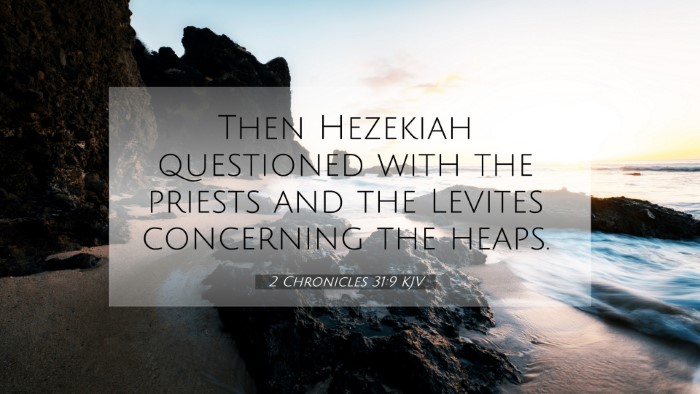Understanding 2 Chronicles 31:9
In 2 Chronicles 31:9, we find a verse that encapsulates a moment of reflection and inquiry regarding the state of offerings and tithes in the Kingdom of Judah under King Hezekiah’s reign. Let's explore the meaning and insights drawn from various public domain commentaries melded together for a profound understanding.
Verse Context
2 Chronicles 31:9 states:
“And Hezekiah asked the priests and the Levites concerning the heaps.”
Summarized Meaning
This verse reveals King Hezekiah's genuine concern for the spiritual health of his kingdom. After reinstating proper worship and sacrificial practices, he inquires about the ‘heaps’ of offerings gathered. It is a moment that signifies leadership responsibility, accountability, and communal engagement in religious duties.
Insights from Commentaries
- Matthew Henry: He emphasizes Hezekiah’s proactive approach in seeking to understand the status of the offerings presented before God. This reflects the king's commitment to restoring the temple practices and ensuring that worship was conducted properly.
- Albert Barnes: Barnes points out that Hezekiah's question also signals the restoration of the Levites' responsibilities and the importance of their roles in the worship system of Israel. His inquiry serves as a benchmark for evaluating the spiritual dedication of the people.
- Adam Clarke: Clarke highlights the need for inspection and transparency in sacred matters. Hezekiah's inquiry into the ‘heaps’ assures that the people are fulfilling their duties and that the materials for worship are being collected appropriately.
Theological Implications
Hezekiah’s inquiry can be seen as a model for church leaders and believers today, emphasizing the importance of regular checks and balances within a faith community. It calls for leaders to remain engaged with the spiritual practices of their congregations and to ensure that worship is not only meaningful but also plentiful and well-managed.
Bible Verse Cross-References
To deepen our understanding of 2 Chronicles 31:9, we can explore several related verses:
- 1 Chronicles 29:9: This verse discusses the rejoicing of the people as they willingly brought their offerings, paralleling the significance of community engagement in worship.
- Nehemiah 10:39: References the obligation of bringing offerings, aligning with King Hezekiah’s focus on proper worship practices.
- 2 Corinthians 9:7: Discusses giving willingly as an act of worship, resonating with the themes of sacrifice and offerings seen in Hezekiah's time.
- Malachi 3:10: Talks about bringing the full tithe into the storehouse, drawing a clear line between Hezekiah's era and the importance of faithfulness in giving.
- Exodus 35:29: Mentions the hearts of individuals moved to bring offerings, a theme that echoes Hezekiah's objectives.
- Hebrews 13:16: This verse reinforces the act of doing good and sharing, linking it to the communal aspects of worship highlighted in 2 Chronicles.
- Proverbs 3:9: Calls for honoring the Lord with one’s wealth, which ties back to the scriptural principles of sacrificial giving.
Connections Between Bible Verses
The interplay of themes in this verse and the cross-references showcases the holistic view of worship and communal responsibility within the scriptures.
- Thematic Bible Verse Connections: From communal offerings in the Old Testament to sacrificial teachings in the New Testament, the theme of giving as an act of worship transcends time.
- Bible Concordance: Tools like a concordance can facilitate deeper studies into the words and phrases surrounding offerings throughout both testaments, enriching understanding.
- Cross-Referencing Biblical Texts: Examining these connections provides insights into the continuity of worship practices from the time of Hezekiah to the early church.
Inter-Biblical Dialogue
The verse invites readers to engage in a deeper exploration of how the Old Testament laws and practices inform New Testament beliefs and practices concerning giving and worship. It represents a thread of continuity that enriches the believer's understanding of God's expectations across both testaments.
Application in Modern Context
Believers today are encouraged to reflect on their contributions to the church and their community. Like Hezekiah, they should ask questions about the state of their spiritual commitments and the way they contribute to the worship community.
Conclusion
2 Chronicles 31:9 serves as a potent reminder of the importance of accountability in worship and community involvement. Through the insights gained from commentaries and scriptural cross-references, we learn valuable lessons about the role of leaders in the church and the necessity for all believers to engage actively in the life of their faith communities.


